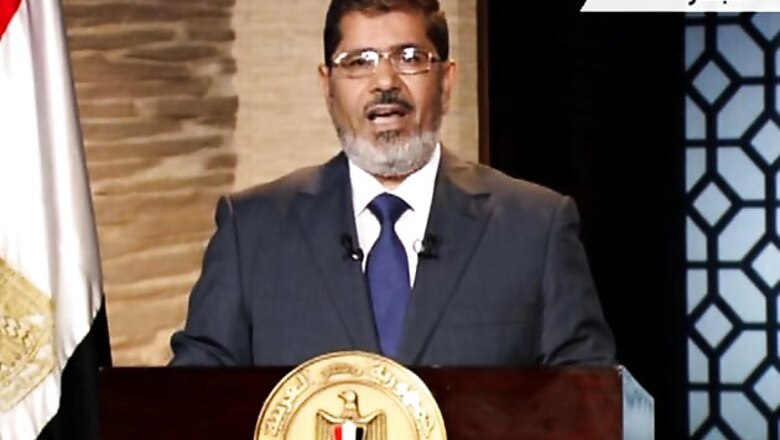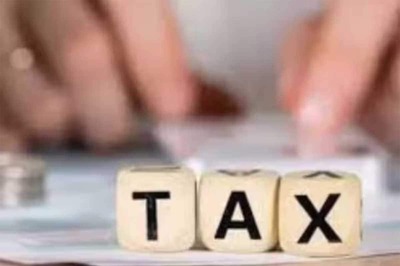
views
Cairo: A panel of judges on Wednesday recommended the dissolution of Egypt's Muslim Brotherhood, the Islamist group from which President Mohammed Morsi hails, arguing it has no legal status.
The recommendation is not binding, but is significant given charges by the opposition that the Brotherhood's leadership is the real power behind Morsi. The president and Brotherhood have repeatedly denied the charge.
The recommendation was made to a high administrative court that is expected to rule later in March on the Brotherhood's legitimacy. The judges' panel, which was providing an advisory opinion to the court, said that the organization does not have a proper legal status.
The Brotherhood's legal status has for years been caught up in multiple court cases. Formed in 1928, it was dissolved in 1954 by military rulers. Despite the ban, it grew into Egypt's most organized and widespread political force, with authorities alternating between tolerance of its activities and fierce crackdowns on it.
The ban on it was lifted by the ruling military after the fall of autocrat Hosni Mubarak in February 2011. It then formed a political party that went on to dominate parliamentary elections. Morsi, a Brotherhood veteran, was the party leader until he was elected president in June last year and he formally left the party.
In response to the judges' recommendation, the Brotherhood's legal adviser said Wednesday that the group registered with authorities earlier this year and planned to do so again when parliament adopts new legislation regulating the work of NGOs. All non-governmental organizations are required to register with the government.
"We never publicized that we registered the group because that does not add or take away anything," Abdel-Moneim Abdel-Maqsoud, the legal adviser, told Al-Jazeera television.
It is unclear why the group did not publicize previously that it has been registered when it is accused almost daily of being an illegal organization, and there was no independent confirmation that the Brotherhood was registered.
Mubarak-era laws governing NGOs still in effect bar them from many political activities, including backing a political party through advocacy or funding, and include requirements for reporting the NGO's finances. The Brotherhood says its political arm - the Freedom and Justice Party - is organizationally separate from the group. Ahmed Aref, a Brotherhood spokesman, pointed out that the recommendation does not amount to a court ruling.
"We are waiting for the new legislation to be adopted and we will immediately legalize the group," said Aref. "There is nothing that should stop us from doing that," he told The Associated Press.
He pointed to court cases the Brotherhood won in the decades before its banning in 1954 that confirmed its status as a religious organization.
Wednesday's recommendation came two days before a planned protest outside the headquarters of the Brotherhood in a district of eastern Cairo. The demonstration is to protest an assault last weekend by Brotherhood supporters on reporters and activists outside the building.
The Brotherhood says its supporters were provoked by the activists and that the reporters were involved in the protest. Video clips posted on social networks show the activists trying to plaster posters and paint graffiti on the building's outside walls. When Brotherhood members tried to stop them, the protesters responded with taunts and hostile chants.
Other clips show the Brotherhood's members, mostly bearded with a heavy build, punching and slapping the protesters and hitting them with sticks. Those assaulted included a woman.
Diaa Rashwan, the newly elected head of the journalists' union, has lodged a complaint over the assault on the reporters with the attorney general, the country's top prosecutor.


















Comments
0 comment